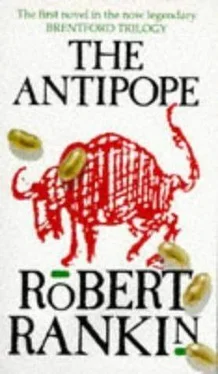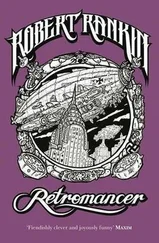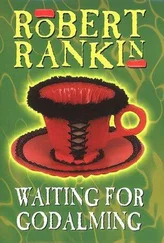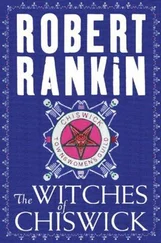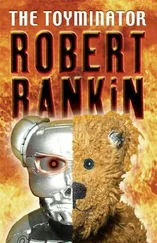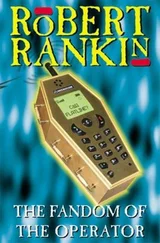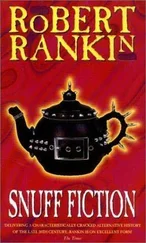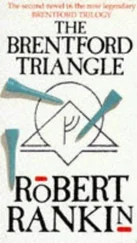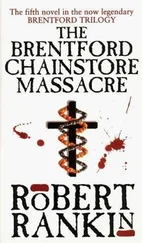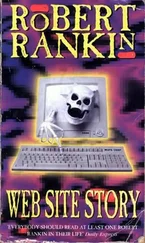Robert Rankin - The Antipope
Здесь есть возможность читать онлайн «Robert Rankin - The Antipope» весь текст электронной книги совершенно бесплатно (целиком полную версию без сокращений). В некоторых случаях можно слушать аудио, скачать через торрент в формате fb2 и присутствует краткое содержание. Жанр: Современная проза, на английском языке. Описание произведения, (предисловие) а так же отзывы посетителей доступны на портале библиотеки ЛибКат.
- Название:The Antipope
- Автор:
- Жанр:
- Год:неизвестен
- ISBN:нет данных
- Рейтинг книги:4 / 5. Голосов: 1
-
Избранное:Добавить в избранное
- Отзывы:
-
Ваша оценка:
- 80
- 1
- 2
- 3
- 4
- 5
The Antipope: краткое содержание, описание и аннотация
Предлагаем к чтению аннотацию, описание, краткое содержание или предисловие (зависит от того, что написал сам автор книги «The Antipope»). Если вы не нашли необходимую информацию о книге — напишите в комментариях, мы постараемся отыскать её.
The Antipope — читать онлайн бесплатно полную книгу (весь текст) целиком
Ниже представлен текст книги, разбитый по страницам. Система сохранения места последней прочитанной страницы, позволяет с удобством читать онлайн бесплатно книгу «The Antipope», без необходимости каждый раз заново искать на чём Вы остановились. Поставьте закладку, и сможете в любой момент перейти на страницу, на которой закончили чтение.
Интервал:
Закладка:
The electrification of the fairy lights had been the biggest problem, and Norman’s rudimentary knowledge of the workings of electricity had cost him many a scorched fingertip. He had toyed with the idea of simply running an extension lead to the nearest available wall socket but this was too limiting to his movements. Thus Norman, through his usual system of trial and error, had perfected an efficient though weighty set of precharged solid-cell batteries which were strapped about his waist very much in the nature of Batman’s utility belt. A set of switches upon the buckle enabled him to alter the fluctuation and sequence of the lights in a manner both pleasing and artistic.
Happily the PVC of the suit acted as an excellent insulator and the whole contraption was earthed through leads which ran down the backs of his trouser legs to brass plates nailed to the heels of a pair of rented cowboy boots.
Norman tinkered happily about with screwdriver and soldering iron, here replacing a defunct bulb, here resoldering a faulty socket. Tomorrow all Brentford would salute his creative genius. No longer would they smile indulgently and allude to his previous failed ventures with unconcealed mirth. He’d show ’em.
Norman flicked a switch upon his belt buckle. Sadly he was not wearing the brass-heeled boots on this particular occasion and the crackle of electrical energy which snapped through his fingers crossed his eyes and rattled his upper set.
“Damn and blast,” said Norman.
Archroy sat in the doorway of his allotment shed, elbows upon knees and chin cupped in the palms of his hands. At his feet a cup of cocoa was rapidly growing cold. His wife was up to something back at the marital home; there was a new roll of wire netting standing ominously in the hall and a large stack of red flettons in the back yard. She had muttered something about an aviary on the last occasion he had seen her. Also there was the affair of the beans weighing heavily upon his narrow shoulders.
Archroy sighed tragically. Why couldn’t life be the straightforward affair it had once been?
As he sat in his misery Archroy’s eyes wandered idly in the direction of Omally’s allotment plot. There upon the rugged patch of earth stood the solitary stake which marked out the location of the planted bean. Archroy had diligently watered the spot night after night. Omally had not been down to the site once during the last couple of weeks, and Archroy felt he had lost interest in the whole affair. He rose from his orange box and slouched over to inspect the Irishman’s dark strip of land. The stake appeared slightly crooked so he straightened it, stooping to smooth over the earth. There were no signs of life whatever, no pleasant green stripling or young plantoid raising its head to the sunlight. Nothing but the barren earth. Archroy bent his head near to the ground and squinted. This was, after all, his last bean and if this failed he would have nothing whatever to recompense him for the tragic loss of his Morris Minor.
Perhaps if he just dug it up for a moment to check that it was all right, it couldn’t do any harm. Then if it showed any signs of life he could always replace it. No, it wouldn’t hurt, one quick look. He needn’t mention it to Omally.
The earth was soft and damp from its daily watering. Almost at once his fingers closed about a damp and clammy object which he hastily brought to the surface. Gently laying it upon his palm he smoothed away the dark earth which clung to it, exposing to his horror the familiar outlines of a common seed potato. Archroy’s expression became one of grave concern. He hurled the potato aside and flung himself to his knees. Rooting to and fro across the plot like a demented hog in search of a truffle he delved into the earth. Oblivious to the muddy destruction of his tweeds, Archroy covered every inch of the plot to a depth of some ten inches.
There was nothing; the plot was as barren as a desert, although now it would be ready to yield many varieties of vegetable, having been so thoroughly turned. Archroy rose to his feet, mud clinging to the knees and elbows of his suit; his toupet, which the manufacturers had assured him would stand up to a channel swim, had become strangely detached from its moorings and swung above him like a spinnaker.
Archroy turned his eyes to the potato. So it was treachery, no wonder the Irishman had not troubled to come down and water the plot. Why should he wish to water a seed potato?
“Damn and blast,” said Archroy.
Captain Carson watched the vehicle approach the Mission. He had never seen anything quite like it before. The enormous lorry was absolutely, unutterably black. Not a trace of colour was there upon its deathly sides, but for a single red crest emblazoned in the likeness of a bull. The vehicle moved in total silence and seemed strangely lacking in form, like some half-remembered version of the way a lorry should be. It bore neither headlights nor radiator grille, and the windscreen, if such it were, was of the same night hue as the rest of the vehicle. The doors lacked any sign of handles nor even a crack or line to signify their location. It was a thing to inspire nightmare. Soundlessly it drew up before the Mission door, enveloping the Captain within its cold shadow. Shaking away his feeling of revulsion the Captain squared his shoulders and stalked up the short path to confront the dark vehicle.
Certainly it was a unique and striking thing. The Captain noted with interest that there was not a single sharp corner, edge or angle to it, the surfaces flowed away from one another in curve after curve.
The Captain stretched out an inquisitive finger to touch the lorry but withdrew it at a vastly accelerated rate. It was as if he had thrust it into a vat of liquid oxygen. “By the gods,” he said, examining his frost-bitten digit.
As if in response to the Captain’s oath there was a click near the front of the vehicle and the cab door swung slowly open. The Captain wandered towards it upon hesitant feet. No light showed from within, it was like peering into the black void of space.
Without warning a figure appeared from the darkness as one stepping from behind a velvet curtain. He was as black and featureless as his conveyance. Down from the cab he climbed, bearing in his gloved hand a clipboard to which was attached a sheaf of papers.
“Captain Horatio B. Carson?” he enquired in a voice of indeterminate accent. The Captain nodded slowly and without enthusiasm. “Delivery.”
“I ordered nothing!”
“There is no cause for alarm,” said a soft voice behind and slightly above the Captain.
Turning, the Captain squinted up into the face of the tramp. “What is all this?” he demanded.
“Kindly assist this gentleman with the removal of all the old furniture from the dining-room.”
“Old furniture? You can’t do that, the furniture is the property of the Mission.”
“Kindly do as I request, all will be explained to you later.”
The Captain threw up his arms in a gesture of helplessness and led the dark figure into the Mission, where under the tramp’s direction the two stripped the dining-room of its furnishings. When these had been heaped into an untidy pile in the yard, the tramp said, “And now if you will be so kind, the new furniture is to be brought in. May I beg your caution when handling it as some pieces are of great worth and all irreplaceable.”
The Captain shook his head in bewilderment and mopped the perspiration from his brow with an oversized red gingham handkerchief. For the next half an hour his life was nothing short of a nightmare. The truck’s dark occupant swung open the rear doors of the mighty vehicle, exposing another fathomless void. Working without apparent effort and clearly oblivious to the great weight of some of the more ornate and heavily gilded pieces of furniture he and the Captain unloaded and installed in the Mission an entire suite, table, chairs, sideboard, cabinet, a pair of golden candelabra, velvet wall-hangings and a crested coat of arms. All these items would clearly have been well at home amid the splendours of Fontainebleau. Each was the work of exquisite and painstaking craftsmanship, and each bore etched into the polished woodwork or inlaid in precious metals the motif of the bull.
Читать дальшеИнтервал:
Закладка:
Похожие книги на «The Antipope»
Представляем Вашему вниманию похожие книги на «The Antipope» списком для выбора. Мы отобрали схожую по названию и смыслу литературу в надежде предоставить читателям больше вариантов отыскать новые, интересные, ещё непрочитанные произведения.
Обсуждение, отзывы о книге «The Antipope» и просто собственные мнения читателей. Оставьте ваши комментарии, напишите, что Вы думаете о произведении, его смысле или главных героях. Укажите что конкретно понравилось, а что нет, и почему Вы так считаете.
